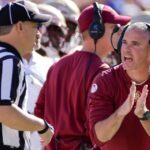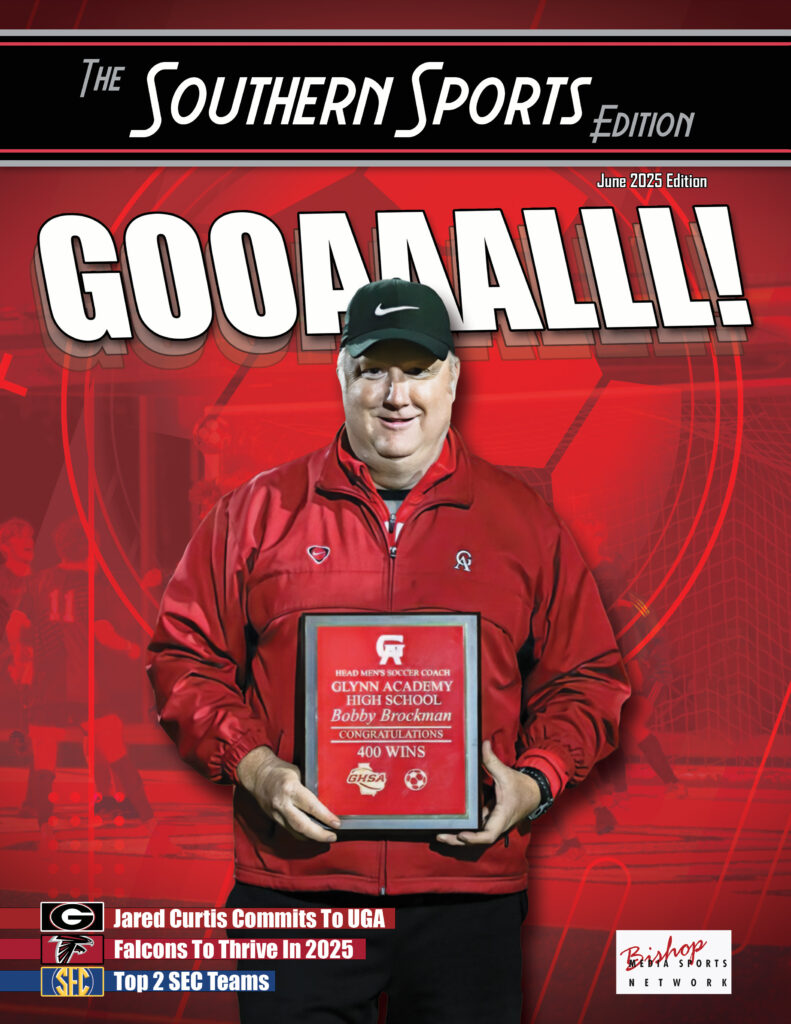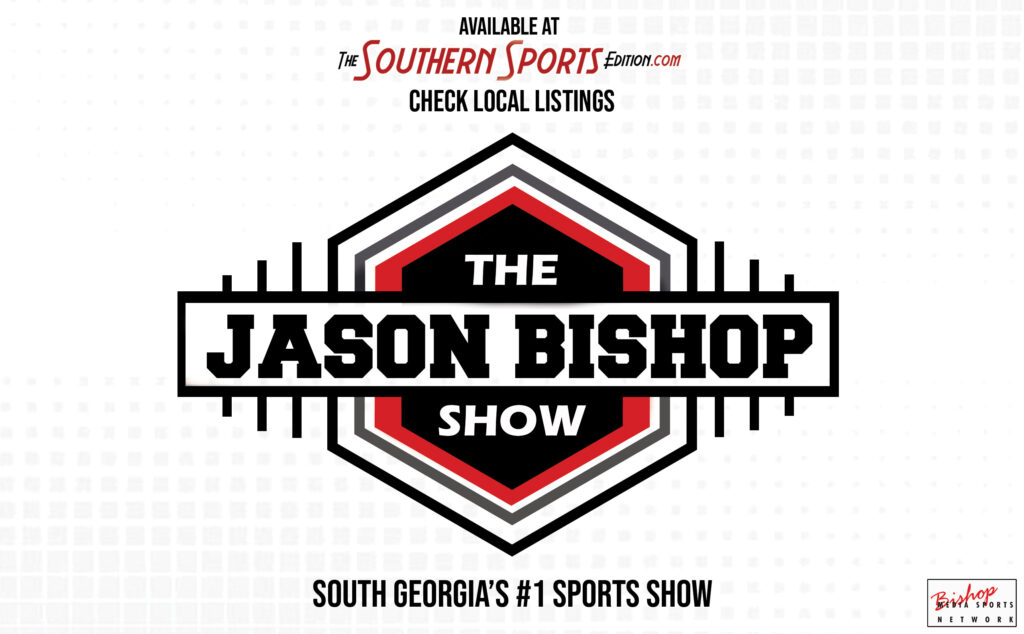NCAA Tries To Make Example Of Florida State Seminoles NIL Collective
Putting Down The Spear
 By: Robert Craft
By: Robert Craft
TheSouthernSportsEdition.com news services
The NCAA Committee on Infractions has levied penalties against Florida State’s football program, an assistant coach, one of its’ collectives and a booster for NIL-related recruiting violations.
The NCAA said the assistant coach facilitated impermissible contact between a transfer prospect and a booster in the spring of 2022, driving the prospect to meet with a booster.
During the meeting, the booster encouraged the prospect to enroll at Florida State and offered him an NIL opportunity with the collective worth approximately $15,000 per month during his first year at the school.
The prospect did not enter into an agreement with the booster or receive any related compensation and returned to his school.
FSU offensive coordinator Alex Atkins and former Georgia offensive tackle Amarius Mims are the two involved.
Mims recently announced he was forgoing the rest of his college eligibility to enter the NFL Draft after the Bulldogs 63-3 win over the Seminoles in the Orange Bowl.
The FSU collective was identified as Rising Spear. Seminoles head coach Mike Norvell was not named in any findings nor was he penalized.
The school and enforcement staff agreed during the investigation the assistant coach also violated unethical conduct rules when he knowingly provided false or misleading information about these violations.
FSU was fined $5,000 plus one percent of its football budget and placed on two years probation with a reduction of five scholarships over the period.
The assistant was given a two-year show-cause order, including a suspension for the first three games of the 2024 season, a two-week restriction on communication and a restriction from off-campus recruiting during the fall 2023 season.
In addition to penalties related to reductions in official paid visits and in-person recruiting days, FSU must also disassociate itself from the booster for three years, and from the collective for one year.
It’s clear that the NCAA wanted to make a point here. Leaders had been saying for nearly a year that the NCAA’s enforcement staff was working on NIL/recruiting inducement cases, but as we all know, the process moves very slowly.
This negotiated resolution and the subsequent booster and collective disassociation penalties are meant to be a warning to collectives that they can’t operate as if NCAA rules don’t apply to them; they aren’t allowed to meet with prospective players, and they aren’t allowed to sign them to deals before they enroll.
This is the NCAA trying to rein in behavior that is obviously happening all over the country: meetings between players in the transfer portal and collectives of potential landing spots. We’ll see if this public example has a nationwide impact.
The most notable penalty here might be the two-year show-cause for Atkins, who was hit pretty hard with the resolution.
Coincidentally, the NCAA approved this week at its convention more penalties around show-causes, which force schools to make a case to the NCAA before hiring a penalized coach.
In the future, schools themselves could receive penalties, such as recruiting restrictions, for hiring a coach under a show-cause.
This is Exhibit A on how toothless and afraid the NCAA is of NIL!




